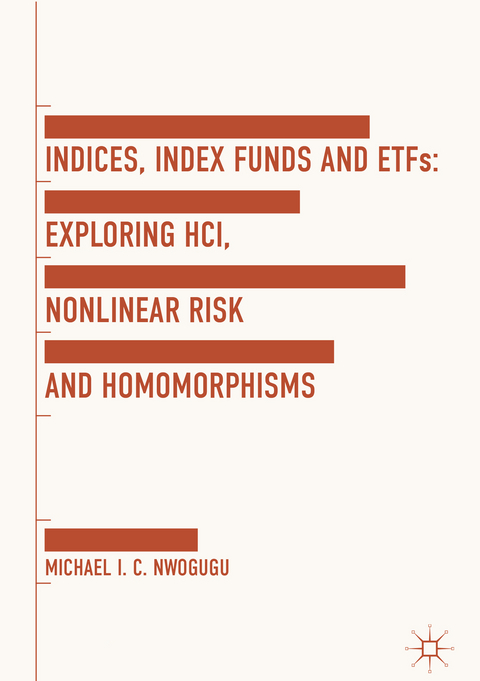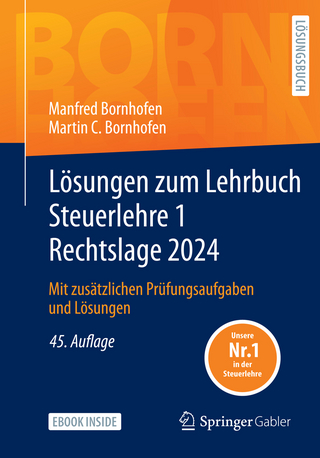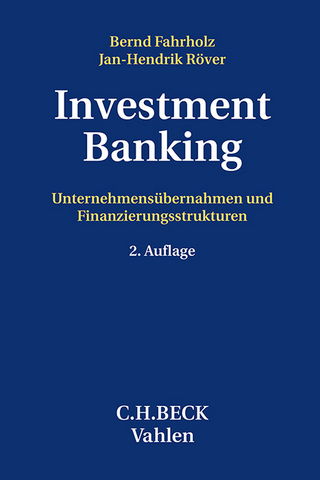
Indices, Index Funds And ETFs
Palgrave Macmillan (Verlag)
978-1-137-44700-5 (ISBN)
Michael I. C. Nwogugu is an author, entrepreneur, and consultant who has held senior management and Board-of-Director positions in companies in both the U.S. and Nigeria. Mr. Nwogugu has written three books: Risk in the Global Real Estate Market (Wiley); Illegal File-sharing Networks, Digital Goods Pricing and Decision Analysis (CRC Press); and Anomalies In Net Present Value, Returns And Polynomials And Regret Theory In Decision Making (Palgrave MacMillan). Mr. Nwogugu’s research articles have been cited in top academic journals such as International Journal of Approximate Reasoning; Applied Mathematics & Computation; Journal of Business Research; European Journal of Operational Research; PNAS; Annual Review of Psychology; Neural Computing & Applications; Mathematical Methods of Operations Research; Computers & Industrial Engineering; and Expert Systems With Applications among others. Mr. Nwogugu earned degrees from the University of Nigeria; CUNY, New York, USA; and Columbia University, New York, USA.
1. Introduction.- 2. Number Theory, “Structural Biases” and Homomorphisms in Traditional Stock/Bond/Commodity Index Calculation Methods in Incomplete Markets with Partially Observable Un-aggregated Preferences, MN-Transferable-Utilities and Regret–Minimization Regimes.- 3. A Critique of Credit Default Swaps (CDS) Indices.- 4. Invariants and Homomorphisms Implicit in, and the Invalidity of the Mean-Variance Framework and Other Causality Approaches: Some Structural Effects.- 5. Decision-Making, Sub-additive Recursive “Matching” Noise and Biases in Risk-Weighted Stock/Bond Commodity Index Calculation Methods in Incomplete Markets with Partially Observable Multi-attribute Preferences.- 6. Informationless Trading and Biases in Performance Measurement: Inefficiency of the Sharpe Ratio, Treynor Ratio, Jensen’s Alpha, the Information Ratio and DEA-Based Performance Measures and Related Measures.- 7. Anomalies in Taylor-Series, and Tracking Errors and Homomorphisms in the Returns of Leveraged/Inverse ETFs and Synthetic ETFs/Funds.- 8. Human Computer Interaction, Misrepresentation and Evolutionary Homomorphisms in the VIX and Options-Based Indices in Incomplete Markets with Unaggregated Preferences and NT-Utilities Under a Regret Minimization Regime.- 9. Human–Computer Interaction, Incentive-Conflicts and Methods for Eliminating Index Arbitrage, Index-Related Mutual Fund Arbitrage and ETF Arbitrage.- 10. Some New Index-Calculation Methods and Their Mathematical Properties.- 11. Financial Indices,Joint Ventures and Strategic Alliances Invalidate Cumulative Prospect Theory, Third-Generation Prospect Theory, Related Approaches and Intertemporal Asset Pricing Theory: HCI and Three New Decision Models.- 12. Economic Policy, Complex Adaptive Systems, Human-Computer-Interaction and Managerial Psychology: Popular-Index Ecosystems.- 13. Implications for Decision Theory, Enforcement, Financial Stability and Systemic Risk.
| Erscheinungsdatum | 18.03.2019 |
|---|---|
| Zusatzinfo | 21 Illustrations, black and white; XXII, 696 p. 21 illus. |
| Verlagsort | Basingstoke |
| Sprache | englisch |
| Maße | 148 x 210 mm |
| Themenwelt | Wirtschaft ► Allgemeines / Lexika |
| Wirtschaft ► Betriebswirtschaft / Management ► Finanzierung | |
| Wirtschaft ► Betriebswirtschaft / Management ► Spezielle Betriebswirtschaftslehre | |
| Wirtschaft ► Volkswirtschaftslehre ► Finanzwissenschaft | |
| Schlagworte | Asset Pricing • Commodity indices • Cumulative Prospect Theory • debt • Equity • ETFs • Index-funds • Risk |
| ISBN-10 | 1-137-44700-1 / 1137447001 |
| ISBN-13 | 978-1-137-44700-5 / 9781137447005 |
| Zustand | Neuware |
| Haben Sie eine Frage zum Produkt? |
aus dem Bereich


